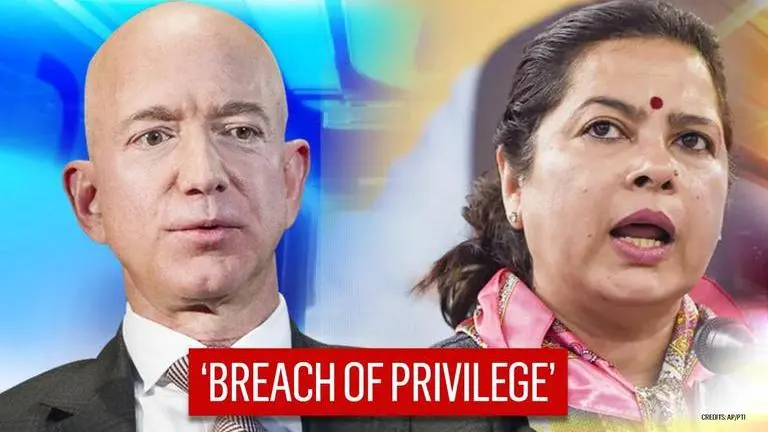Updated 23 October 2020 at 15:36 IST
Data Protection Bill: Amazon refuses to appear before JPC, panel mulls 'coercive action'
Amazon has refused to appear before a joint parliament committee on Personal Data Protection Bill on October 28 after the panel summoned the e-commerce giant.
- World News
- 2 min read

Amazon has refused to appear before a joint parliamentary committee on Personal Data Protection Bill on October 28 after the panel summoned the e-commerce giant and other major tech companies, including Twitter and Google. Bharatiya Janata Party leader Meenakshi Lekhi, who also chairs the panel, said that the refusal to appear before the committee amounts to a breach of privilege.
“The panel is unanimous in its opinion that coercive action can be suggested to the government against the e-commerce company,” she told PTI.
Amazon has reportedly said that their "subject matter experts are overseas" and refused to appear on October 28, citing travel risk due to the ongoing coronavirus pandemic. The parliamentary committee, which is looking into the data protection concerns, had summoned all relevant stakeholders to get an overview.
Meanwhile, top Facebook India officials, policy chief Ankhi Das and business head Ajit Mohan, appeared before the panel on October 23. They were reportedly asked some tough questions on data security and ad targeting. According to PTI, a panel member suggested Facebook to not draw inferences from user data for commercial benefits of advertisers.
Advertisement
Antitrust report
Earlier this month, an antitrust panel in the United States released the findings of over 16-month long investigation into the state of competition in the digital economy. The 449-page report outlined the challenges presented due to the monopoly of Amazon, Apple, Google, and Facebook. The report found that Big Techs exploit their power to dictate terms and extract concessions that “no one would reasonably consent to” in a competitive market.
Advertisement
In some cases, a dominant firm acquired nascent or potential competitors to neutralize a competitive threat or to maintain and expand the firm’s dominance. Another dominant firm acquired smaller companies to shut them down or discontinue underlying products entirely, an act described by the antitrust panel as “killer acquisitions.”
(With PTI inputs)
Published By : Kunal Gaurav
Published On: 23 October 2020 at 15:37 IST
